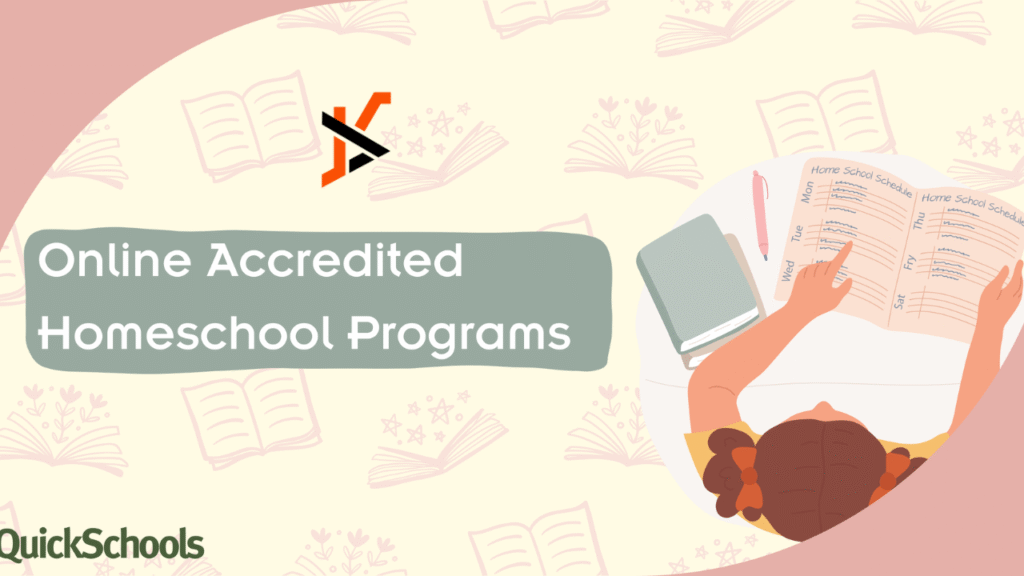Homeschooling has become an increasingly popular choice for education in the United States. According to the National Center for Education Statistics, approximately 5.2% of children aged 5 to 17 received academic instruction at home during the 2022–23 school year, up from 3.7% in the 2018–19 school year.
This growth reflects a desire for more personalized and flexible learning experiences. However, not all homeschooling programs are created equal. Opting for an accredited homeschool program ensures that your child receives a quality education recognized by colleges and universities.
These programs offer structured curricula, certified instructors, and official transcripts, key components that facilitate a smoother transition to higher education. If you’re looking for a detailed dig, keep reading, as this article will delve into how accredited homeschool programs prepare students for college success.
1. Independent learning
Accredited homeschool programs encourage students to take ownership of their learning. Unlike traditional schools, where students often follow a rigid schedule, homeschooling allows children to set their own pace.
They manage their time, balance academics with extracurricular activities, and create their own schedules. This fosters independence, a skill that will help them thrive in college and beyond.
2. Impact on college admissions
The difference between an accredited and a non-accredited homeschool program becomes apparent when children apply for their college programs.
Students from accredited programs are more familiar with the academic standards and deadlines that colleges expect, making the application process smoother. In contrast, students from non-accredited programs may face additional hurdles, such as requiring extensive portfolios, standardized test scores, or letters of recommendation.
3. More financial aid opportunities
As higher education becomes increasingly expensive, most students are forced to explore various sources of financial assistance.
Accredited homeschool programs partners with financial aid institutions to facilitate the process. For example, the Free Application for Federal Student Aid (FAFSA) is a government platform that allows students to apply for financial aid and also helps them manage and repay student loans. This increases their chances of qualifying for loans and grants to fund their education.
4. Family and community involvement
Homeschooling fosters stronger family bonds. Unlike traditional school systems, which often limit parental involvement, homeschooling enables families to engage in learning together.
Parents can participate in activities and learning outcomes, offering direct support. This collaborative experience mirrors the community aspect of college life, preparing students for the social dynamics they’ll face in higher education.
5. Personalized learning
Accredited homeschooling programs are tailored to each student’s abilities and interests.
For instance, Classical Conversations is a core subject in many homeschooling programs that teaches the effectiveness of classical educational models to improve children’s communication. It includes learning logic, grammar, and rhetoric to better prepare children for the future.
Additionally, parents and other adults can monitor their children’s performance and speak to the tutors if any additional resources are required for them to perform better.
6. Better learning resources
Accredited homeschool programs provide high-quality learning resources, including one-on-one lessons and personalized academic guidance.
Many homeschool programs also offer dual enrollment classes, allowing students to earn both their high school and college degrees simultaneously, thereby accelerating their academic progress.
Expert professionals carefully design all these programs to ensure holistic learning.
7. Meaningful learning
In today’s educational landscape, learning is more than just memorizing lessons or earning grades, and accredited homeschool programs understand this.
They focus on meaningful learning, fostering a deeper understanding of subjects that prepares students for real-world challenges.
Colleges are increasingly seeking students who have demonstrated critical thinking and problem-solving skills, not just strong test scores.
8. Improved physical and mental health
Traditional schools often struggle to prioritize students’ individual physical and mental health due to the rigorous and demanding nature of the school curriculum.
Accredited programs often incorporate extracurricular activities, along with mental health support, to ensure students are holistically prepared for the challenges of college life. This balance promotes well-rounded development and resilience.
Conclusion
When selecting an accredited homeschool program, carefully review the curriculum, testimonials, and fee structure to ensure it aligns with your needs. The right program will not only prepare your child academically but also help them develop the independence, resilience, and skills necessary to thrive in college and beyond.

